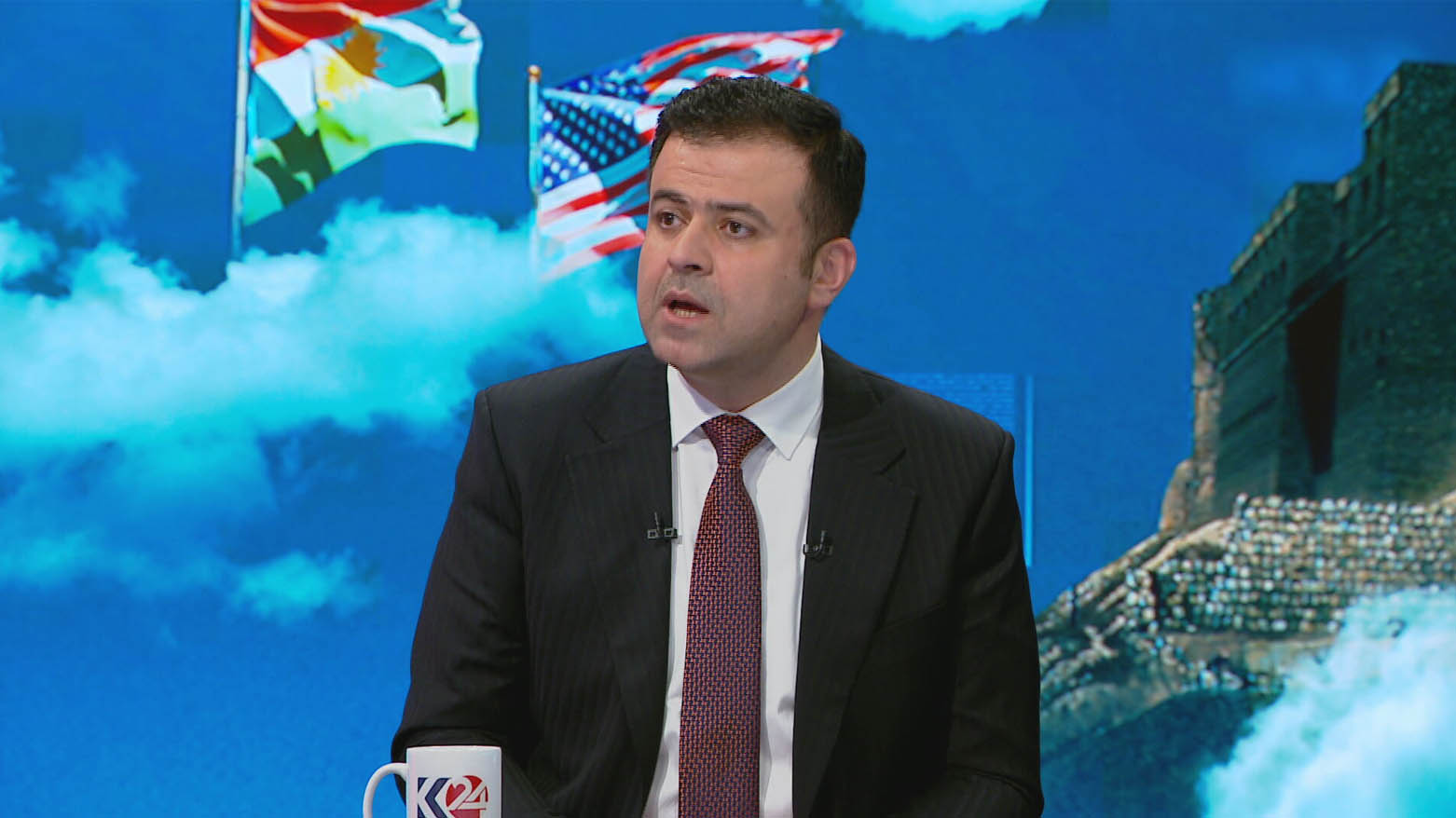Iraqi Legal Committee Chair Decries Federal Finance Ministry’s Decision on Kurdistan Salaries as “Unconstitutional”
Iraqi MP slams Baghdad's halt of KRG salaries as "unconstitutional," as employees sue for payment resumption amid ongoing budget dispute over oil revenues.

By Ahora Qadi
ERBIL (Kurdistan24) – The head of the Legal Committee in Iraq’s Council of Representatives, Rebwar Hadi, on Sunday denounced the Iraqi Federal Ministry of Finance’s decision to suspend salary transfers to Kurdistan Region employees, calling it “legally baseless and unconstitutional.”
Speaking to reporters on June 1, 2025, Hadi criticized the recent order by Iraqi Finance Minister Taif Sami, stating that “the decision lacks any constitutional or legal foundation. The salaries of Kurdistan Region employees are unrelated to oil production, revenue distribution, or budget implementation.”
Hadi emphasized that Iraq’s post-2003 oil fields are governed by a joint strategic plan between the federal and Kurdistan regional governments. However, he noted that “the extraction process remains under the supervision of the Kurdistan Regional Government,” referencing earlier rulings that upheld the constitutional validity of the Region’s oil contracts.
He further explained that Erbil is unable to contribute to federal budget funding due to Baghdad’s suspension of oil exports from Kurdistan for nearly two years. “The federal government must adhere to the contracts signed between companies and the KRG. There is no legal impediment to the deposit of employee salaries. Kurdistan’s oil is Iraqi oil, and the banking system is part of Iraq’s national framework,” he said.
Employees Seek Federal Court Intervention
On the same day, a group of employees from the Kurdistan Region filed a lawsuit with the Federal Supreme Court of Iraq, requesting an injunction to compel the Ministry of Finance to resume salary payments.
According to an official statement from the court, the plaintiffs cited the court’s previous ruling numbered 224 (and its annex 269/Federal/2023, dated February 21, 2024), which mandated timely disbursement of salaries. The new case has been registered under number 104/Federal/2025, with a decision on the injunction expected soon.
Federal Ministry Cites Budget Overreach
In a letter dated May 30, 2025, Finance Minister Taif Sami informed the KRG that the ministry would halt salary disbursements due to the alleged overuse of the Region’s budget allocation, referencing compliance with the federal budget law and the federal court’s interpretation.
Minister Sami claimed that 19.2 trillion dinars in oil and non-oil revenue had not been delivered to Baghdad, a justification the Kurdistan Regional Government considers legally unsound.
KRG Rebuttal and Call for Constitutional Compliance
In response, the KRG Ministry of Finance and Economy issued a statement rejecting the federal decision, insisting that financial allocations should be based on revenues collected at the federal level—not actual expenditures.
The ministry cited the federal court ruling obliging the federal government to fund salaries for Kurdistan Region employees, retirees, families of martyrs, victims of the Anfal campaign, and those under social welfare, in parity with the rest of Iraq’s provinces. That ruling, it noted, has been in effect since February 2024.
The statement stressed that the appropriate basis for allocations is outlined in annexed budget law tables, not the 12.67% of actual spending cited by Baghdad.
Longstanding Injustice in Recruitment and Compensation
The ministry also criticized the federal government for its failure to meet commitments regarding compensation for victims of the Anfal campaign and chemical attacks. It further noted that the Kurdistan Region has been deprived of public sector job appointments since 2013, while hundreds of thousands of positions have been distributed across federal institutions—undermining the principle of equity.
The KRG concluded by urging the federal government to avoid further unconstitutional obstacles and honor the region’s financial entitlements in accordance with Iraq’s highest legal authorities.
